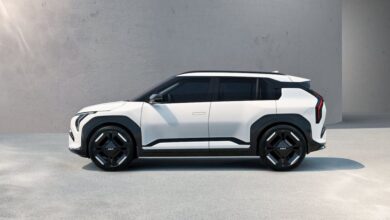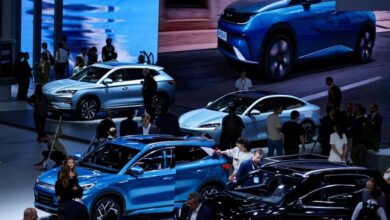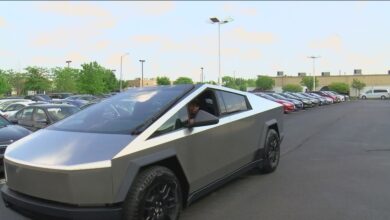Stellantis CEO says low-cost electric Jeep will hit U.S. market ‘very soon’

Jeep owner Stellantis plans to offer electric vehicles in the U.S. at around $25,000 amid increasing competition from Chinese EV manufacturers. File Photo by Peter Foley/UPI
May 29 (UPI) — Stellantis CEO Carlos Tavares said Wednesday the company plans to make a $25,000, all-electric Jeep available to American customers “very soon.”
Tavares, at a Bernstein Investor conference in New York, gave few details about the forthcoming vehicle other than its price, but insisted the new product would be feasible because Stellantis already profitably sells low-cost EVs in other markets.
Advertising
He noted the Citroën e-C3, an electric SUV, is available in Europe for about $25,200.
“In the same way we brought the 20,000 Euro Citroen e-C3, you will have a $25,000 Jeep very soon,” Tavares said. “We are using the same expertise because we are a global company, and this is totally fluid across the engineering world of Stellantis.”
The company’s cheapest EV available in the United States is the $32,500 Fiat 500e. Jeep’s first full-electric car, the Wagoneer S SUV is set to be revealed Thursday, followed by a launch later this year, but the company has not announced a price for it.
Western automakers like Stellantis, Tesla and others have begun prioritizing bringing low-cost EVs to market, as Chinese competitors such as BYD and Nio continue to sell them in Europe and inch closer to the United States.
China’s biggest EV manufacturer, BYD, has plans to build a factory in Mexico and currently offers EVs starting at $10,000.
“It’s a very challenging period, very chaotic, very Darwinian,” Tavares said of the global market. “We are in the storm, and this storm is going to last a few years.”
Tavares’ remarks come amid fears that Chinese-made EVs will flood Western markets and undercut domestic EV production.
President Joe Biden plans this summer to quadruple tariffs on Chinese EV imports, and the European Union on Friday is set to decide on an investigation into Chinese government subsidies for EV companies.
Tavares said tariffs on Chinese imports might delay their expansion into the United States, but they won’t stop it.
“Putting you behind a protectionist bubble is not going to help you to be competitive. … If your strategy is to shrink and stay inside of the bubble, it will buy you time, but certainly it will cut your future,” he said.
Stellantis, meanwhile, has its eye on the global market and has entered a joint venture with Chinese automaker Leapmotor to start selling EVs in Europe, South America, continental Asia and the Pacific region.



